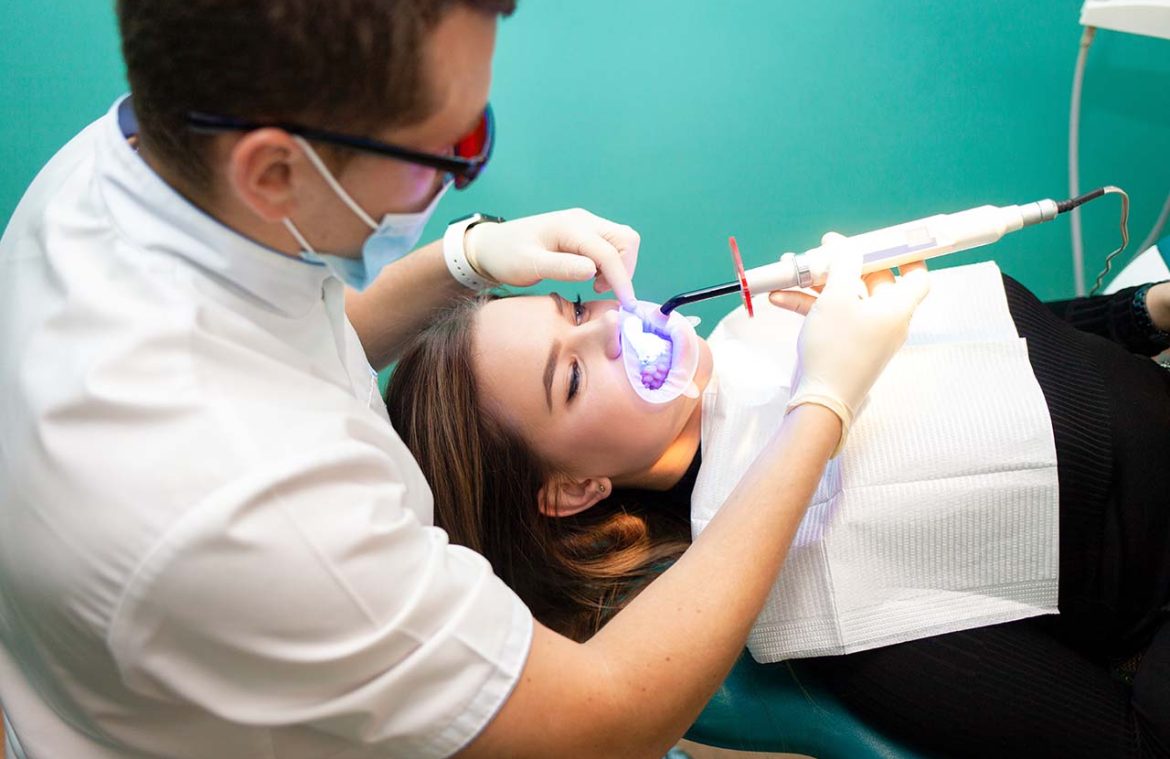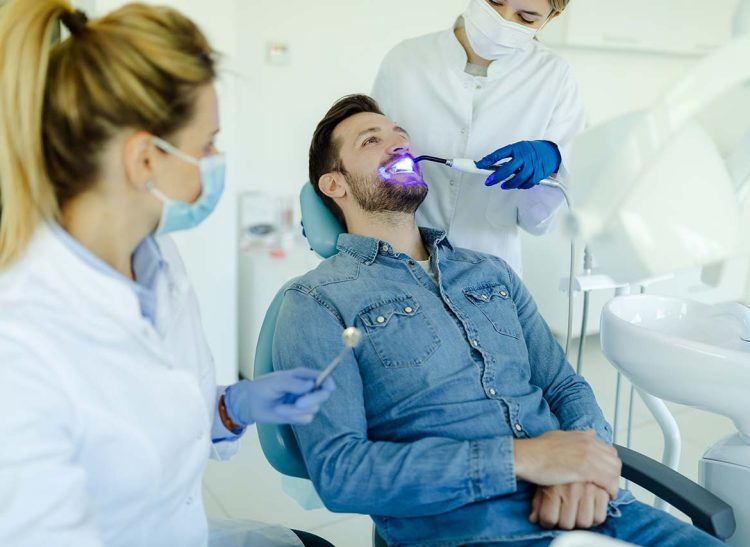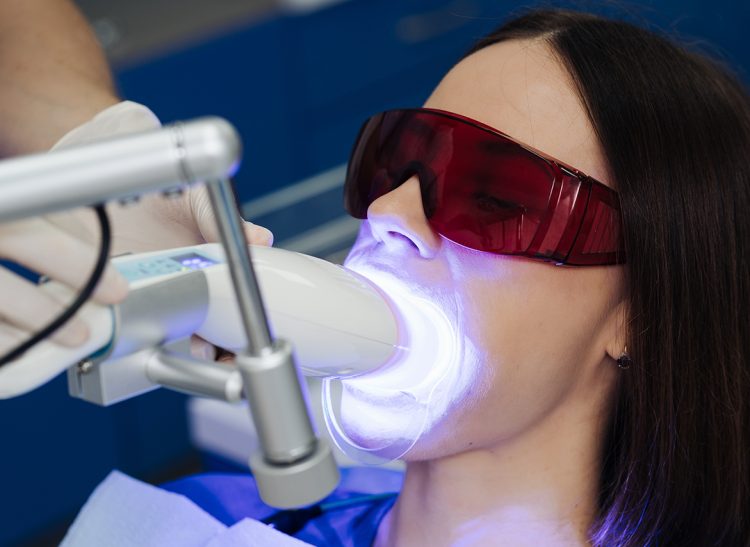
Teeth Whitening
Teeth whitening is a very popular treatment that aims to remove discolouration along with stains on the teeth and restore the shine of the past to the enamel. However, it should be kept in mind that this method is not a definitive solution and must be repeated periodically for the result to be permanent.
On the other hand, it is useful to remember that tooth whitening is different from tooth cleaning, as they are separate dental treatments. While teeth whitening aims to make the teeth whiter, dental cleaning aims to remove the bacterial plaque and tartar settled on the teeth.


Why Are Teeth Stained?
Teeth discolouration is mainly linked to personal habits and lifestyles. Over time, teeth absorb colour pigments from a variety of sources, such as:
- Nutrients,
- Certain beverages, such as coffee,
- Teeth-colouring mouthwashes,
- Medications,
- Tobacco products.
Colour pigments settle in hard tooth tissues (enamel and dentin) and change the natural colour of the teeth, causing them to gradually turn yellow or darken.
When Is It Necessary To Whiten Your Teeth?
The natural or bright colour of the teeth, along with compatible teeth and healthy gums, is one factor contributing to a smile being an “aesthetic smile”. The aesthetic factor is also related to the idea that naturally white and shiny teeth are also synonymous with good general physical health.
Professional teeth whitening can be used when teeth lose their brightness and turn yellow or dark due to various environmental factors.
How is Teeth Whitening Done?
Teeth whitening is an aesthetic treatment that significantly reduces the discolouration of the teeth by using special tools and products and brings the teeth to a whiter and homogeneous colour structure. In this process, hydrogen peroxide (H2O2) plays a key role. Teeth whitening methods are listed below.
Professional Teeth Whitening
Professional teeth whitening is done directly by the dentist in dental clinics or private dental centres. One of the most used techniques at the professional level is tooth whitening with hydrogen peroxide or carbamide peroxide-based substances stimulated by photoactivation.
This whitening performed in the dental clinic is based on the use of a gel applied directly to the teeth. The dentist applies a plastic sleeve to protect the gums and applies the gel to the tooth surfaces.
The session can last up to an hour. Treatment can be accelerated by photoactivation with LED lamps or laser equipment. Professional teeth whitening is significantly more effective than at-home whitening.
Teeth Whitening at Home
In the home teeth whitening process, the low-dose carbamide peroxide-based gel with a whitening function is used by applying it into silicone dental masks. These plates are applied to the teeth for two hours a day. The result of the treatment, which lasts for about a week, is quite satisfactory and long-lasting.
Is Teeth Whitening Treatment Painful?
Professional teeth whitening is a painless dental treatment that does not affect the quality of tooth enamel in any way. The teeth whitening process applied by the dentist does not cause permanent damage to the teeth or oral cavity or loss of substance in the teeth.
In some cases, the patient may experience tooth sensitivity right after the teeth whitening treatment. This feeling is completely temporary and disappears within seventy-two (72) hours of treatment.
Is Teeth Whitening Always an Effective Treatment?
In general, at least three factors affect the results of whitening, and these factors are pre-evaluated by the dentist:
- Patient’s age,
- Type and nature of tooth stains,
- First tooth colour.
In general, teeth whitening is guaranteed in almost all cases. Exceptions are lifeless teeth and tooth stains caused by oral ingestion of certain drugs (for example, tetracycline in some antibiotics). In such cases, it is possible to correct yellow, dark or indelibly stained teeth by applying aesthetic coatings or prostheses to the affected teeth.
Is Teeth Whitening Permanent?
The duration of the tooth colour obtained after whitening depends almost entirely on the patient’s personal habits. In general, smokers and habitual consumers of dye-containing beverages will experience more rapid yellowing. Teeth whitening treatment has no permanent effect. On average, the colour tone remains unchanged for one year after taking appropriate measures. The best way to preserve the effects of teeth whitening is to follow a combined care program with a dentist.
How to Prolong The Effect of Teeth Whitening?
In order to prolong the effect of the teeth whitening in the days following the treatment, it is recommended to follow some rules:
- The patient should maintain proper oral hygiene.
- No smoking. In addition, the consumption of tea, coffee and alcohol should be limited. However, for coloured beverages, straw may be a good solution to avoid direct contact of the beverage’s pigments with the whitened teeth.


